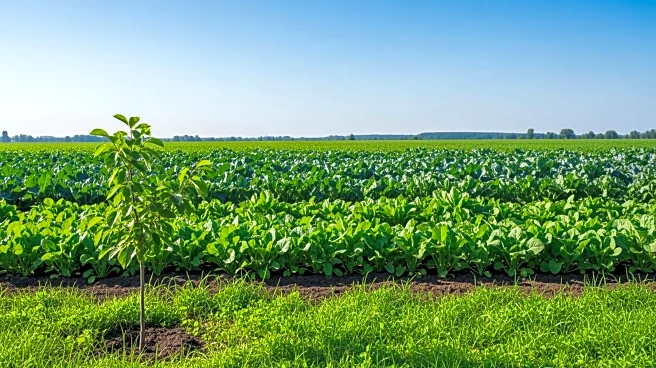What's Happening?
Embrapa and Nestlé Brazil have announced a strategic partnership to promote regenerative agriculture, focusing on reducing agricultural emissions and enhancing sustainability in Brazil. The collaboration
aims to develop sustainable technologies and strengthen production practices in the milk and cocoa supply chains. Initial projects include analyzing the emission profile of lactating cows and developing agroforestry systems for sustainable cocoa cultivation. This initiative seeks to integrate science and field practice to promote decarbonization and reinforce Brazil's role as a leader in sustainable agricultural production.
Why It's Important?
The partnership between Embrapa and Nestlé Brazil highlights the growing importance of regenerative agriculture in addressing climate change and promoting sustainable development. By focusing on low-carbon milk and sustainable cocoa, the initiative aims to reduce greenhouse gas emissions and improve agricultural practices. This collaboration represents a significant step towards achieving carbon neutrality and enhancing Brazil's agricultural sustainability. It also underscores the role of public-private partnerships in driving innovation and creating scalable solutions for environmental challenges.
What's Next?
The partnership is expected to expand the scope of the low-carbon milk program and develop new methodologies for quantifying greenhouse gases. Embrapa and Nestlé plan to invest in genetic research and improve planting techniques to increase productivity and carbon capture. The adoption of regenerative technologies in cocoa farming could position Brazil as a global leader in sustainable agricultural production, particularly in sensitive regions like the Amazon.
Beyond the Headlines
Regenerative agriculture offers a holistic approach to sustainability by promoting soil restoration and efficient water use. It challenges conventional agricultural practices and encourages a shift towards more sustainable and resilient food systems. This approach not only addresses environmental concerns but also supports social development and economic viability in rural communities.









